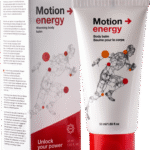Hearing is one of our most essential senses, yet many of us take it for granted—until we start noticing problems. Whether you struggle to hear conversations in noisy places or simply want to enhance your auditory abilities, there are steps you can take to supercharge your hearing and improve sound clarity. Here are 10 expert-backed tips to help you listen better and protect your ears for years to come.

1. Protect Your Ears from Loud Noises
Exposure to loud noises is one of the leading causes of hearing loss. Avoid prolonged exposure to sounds above 85 decibels (dB)—such as concerts, construction sites, or loud music. Wear earplugs or noise-canceling headphones to protect your ears when needed.

2. Clean Your Ears the Right Way
Earwax buildup can block sound waves and make hearing more difficult. However, avoid using cotton swabs, which can push wax deeper into the ear. Instead, use ear drops or consult a professional for safe cleaning.


3. Train Your Brain to Hear Better
Hearing isn’t just about your ears—it’s also about how your brain processes sound. Try active listening exercises, like focusing on a single conversation in a noisy place or practicing auditory memory games.

4. Eat a Hearing-Healthy Diet
Certain nutrients support ear health and improve sound clarity. Add foods rich in:
- Omega-3 fatty acids (salmon, walnuts)
- Magnesium (bananas, spinach)
- Zinc (pumpkin seeds, dark chocolate)
- Vitamin C & E (oranges, almonds)
These help reduce inflammation and protect against ability to hear loss.
5. Stay Hydrated for Clearer Hearing
Dehydration can affect the fluid balance in the inner ear, leading to hearing issues. Drink enough water daily to maintain optimal ear function.
6. Use Hearing Apps & Assistive Technology
Technology can help enhance your ability to hear. Apps like Sound Amplifier or Mimi Hearing Test can adjust sound clarity and volume in real time, making conversations easier to understand.
7. Avoid Ototoxic Medications
Some medications, including certain antibiotics and painkillers, can damage your ability to hear over time. If you’re concerned about hearing side effects, talk to your doctor about alternative treatments.
8. Give Your Ears a Rest
Just like your body needs rest, so do your ears. After exposure to loud environments, take a quiet break for at least 15 minutes to help your ears recover.
9. Get Regular Hearing Checkups
A hearing test isn’t just for people with ability to hear loss. Experts recommend an annual hearing exam to detect early signs of hearing decline and take preventive measures.
10. Try Sound Therapy & White Noise
Sound therapy can help improve ability to hear and reduce conditions like tinnitus (ringing in the ears). Use white noise machines or soft background music to train your ears to focus on specific sounds.
Final Thoughts
Your hearing is precious, and taking small daily steps can make a big difference. By protecting your ears, training your brain, and maintaining a healthy lifestyle, you can supercharge your hearing and enjoy crystal-clear sound clarity for years to come.
Who can benefit from these ability to hear tips?
Anyone looking to improve their ability to hearts, or just want to maintain healthy hearing habits—can benefit from these expert tips.
Do I need ability to hear aids to follow these tips?
Not necessarily. While some tips may complement the use of ability to hear aids, many focus on natural ways to enhance sound clarity, such as lifestyle changes, communication strategies, and ear hygiene.
How quickly can I expect to notice improvements?
Results vary depending on the tip and your specific ability to hear condition. Some techniques (like reducing background noise or positioning yourself better in conversations) can provide immediate improvements, while others (like dietary changes or ability to hear exercises) may take weeks.
Are these tips medically approved?
The tips are based on expert recommendations from audiologists and ability to hear health professionals. However, always consult with a licensed audiologist for personalized advice.
What are common signs of reduced ability to hear clarity?
Common signs include asking people to repeat themselves, struggling to hear in noisy environments, turning up the TV volume, or experiencing ringing in the ears (tinnitus).
Can these tips prevent ability to hear loss?
While they may not completely prevent ability to hear loss, adopting these habits can protect your hearing, reduce strain, and potentially slow down hearing deterioration over time.
How often should I get my ability to hear checked?
Experts recommend getting a hearing test every 1–2 years, especially if you’re over 50 or frequently exposed to loud environments.
Is sound clarity the same as ability to hear volume?
Not quite. Volume is about how loud sounds are, while clarity involves your ability to distinguish speech and specific sounds, especially in noisy settings.
Do headphones or earbuds affect ability to hear clarity?
Yes—especially at high volumes or with prolonged use. Using noise-canceling headphones at moderate volumes is a safer alternative to avoid long-term damage.
Can diet or supplements help with ability to hear clarity?
A healthy diet rich in antioxidants and nutrients like magnesium and omega-3s may support overall ear health. However, speak with your doctor before starting any supplements.


